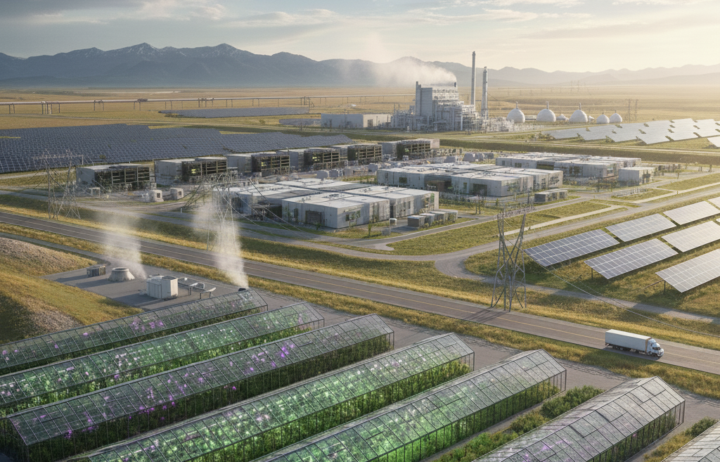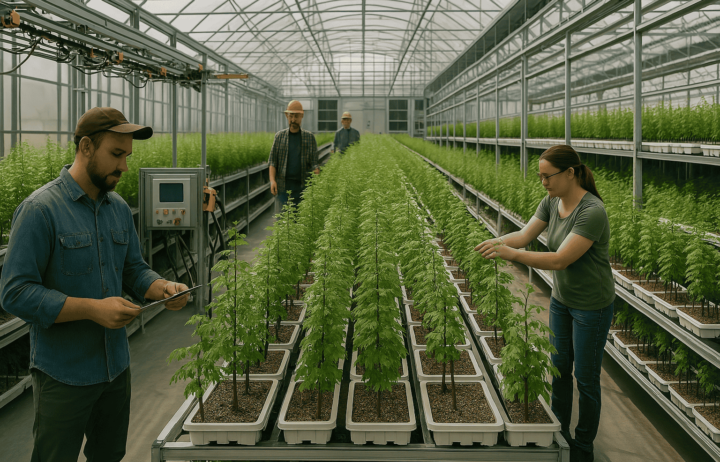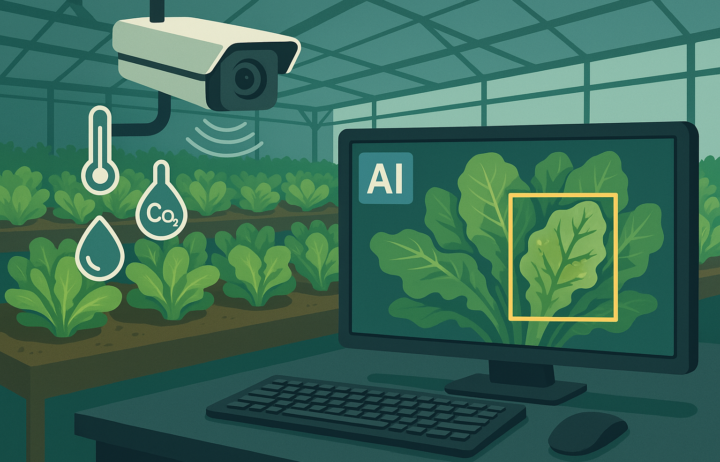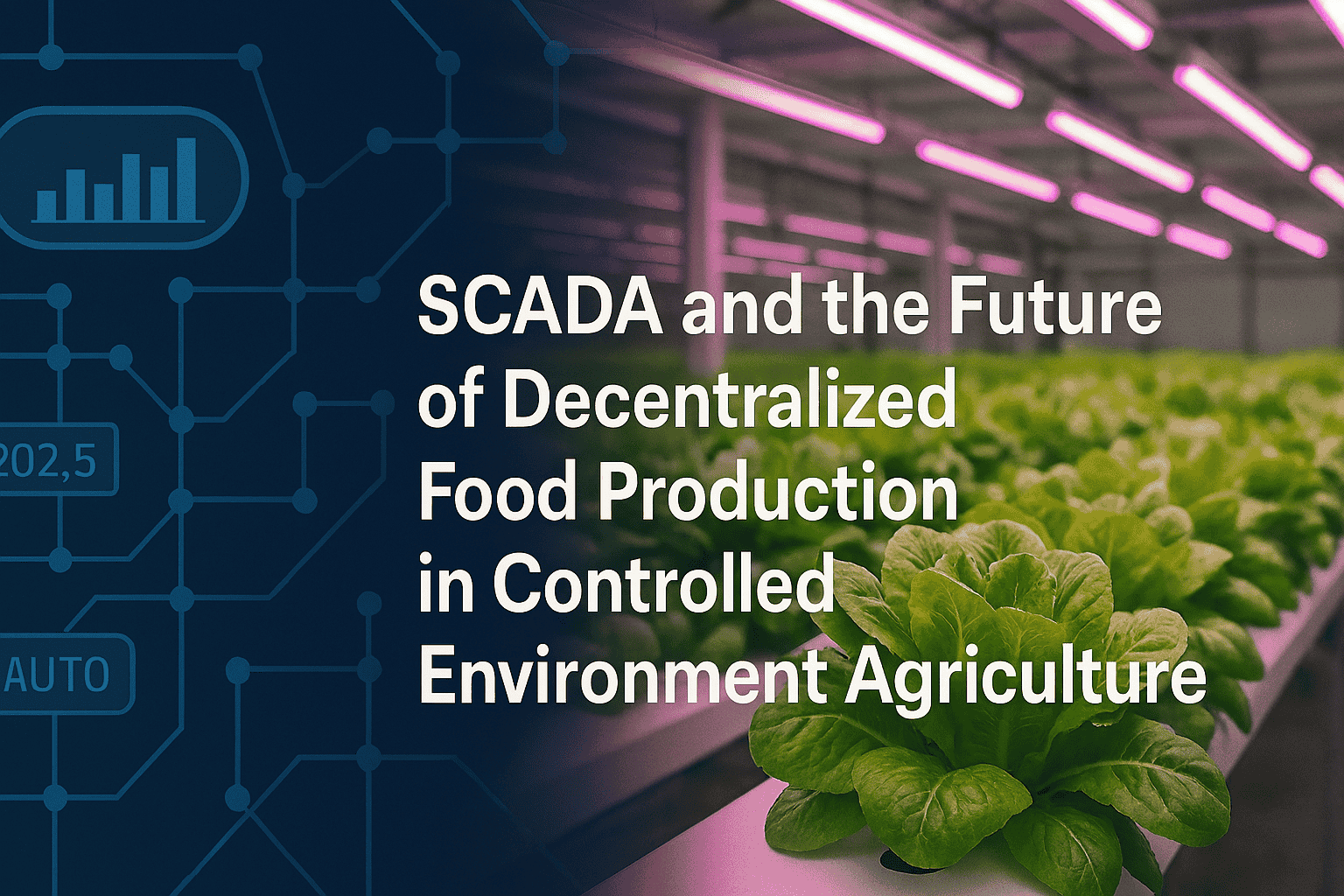
SCADA and the Future of Decentralized Food Production in Controlled Environment Agriculture
In the last century, food systems have grown increasingly centralized—large farms in distant locations producing crops that travel hundreds or thousands of kilometers before reaching your plate. While this model has supported population growth, it has also exposed vulnerabilities in global supply chains, environmental sustainability, and food security.
At the same time, controlled environment agriculture (CEA)—indoor farming that uses hydroponics, greenhouses, and vertical farming—has emerged as a way to grow fresh, high-quality food anywhere in the world, all year round. But CEA requires precision. To maximize its potential, we need more than good lighting and water; we need data-driven automation systems that make farming predictable, scalable, and profitable.
This is where SCADA systems come in.
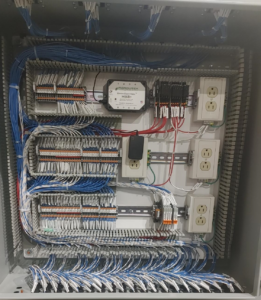
What is SCADA?
SCADA, or Supervisory Control and Data Acquisition, is the backbone of automation in industries like oil and gas, power generation, water treatment, and advanced manufacturing. At its simplest, SCADA is a digital nervous system—it gathers data from sensors, processes it in real time, and provides operators with a clear picture of what’s happening inside a facility.
A SCADA system typically includes:
- Sensors and controllers to capture real-time data such as temperature, humidity, or electrical flow.
- Human-machine interfaces (HMIs) that let operators view system performance at a glance.
- Alarms and alerts to flag when something is outside optimal range.
- Data logging and analysis tools to improve efficiency, spot trends, and plan for the future.
While SCADA has long been a staple in heavy industry, agriculture is only beginning to harness its full potential.
How NuLeaf Farms Applies SCADA Through The Leaf & Root
At NuLeaf Farms, we recognized early that SCADA wasn’t just for factories—it could transform the way we grow food. That’s why we built the Leaf & Root, our compact, all-in-one automation platform designed specifically for agriculture.
Here’s how the Leaf & Root takes SCADA principles and adapts them to farming:
- Unified Environmental Control – Instead of juggling separate systems for lighting, HVAC, irrigation, and fertigation, Leaf & Root integrates everything into one dashboard. Growers can make real-time adjustments or rely on automation to keep conditions optimal.
- Digital Twin Technology – We pair SCADA with digital twins, creating virtual replicas of farms that simulate growth scenarios. This allows growers to test strategies—like adjusting nutrient delivery or changing lighting schedules—before applying them in the real world.
- Remote Oversight – Whether you operate one greenhouse or a network of vertical farms across a region, Leaf & Root allows you to monitor and control them from anywhere. This is especially powerful for decentralized food systems, where dozens of smaller farms feed into local markets.
- Data-Driven Decisions – Leaf & Root doesn’t just collect data; it turns it into actionable insights. Operators can see exactly how changes affect yield, quality, and profitability, creating a cycle of continuous improvement.
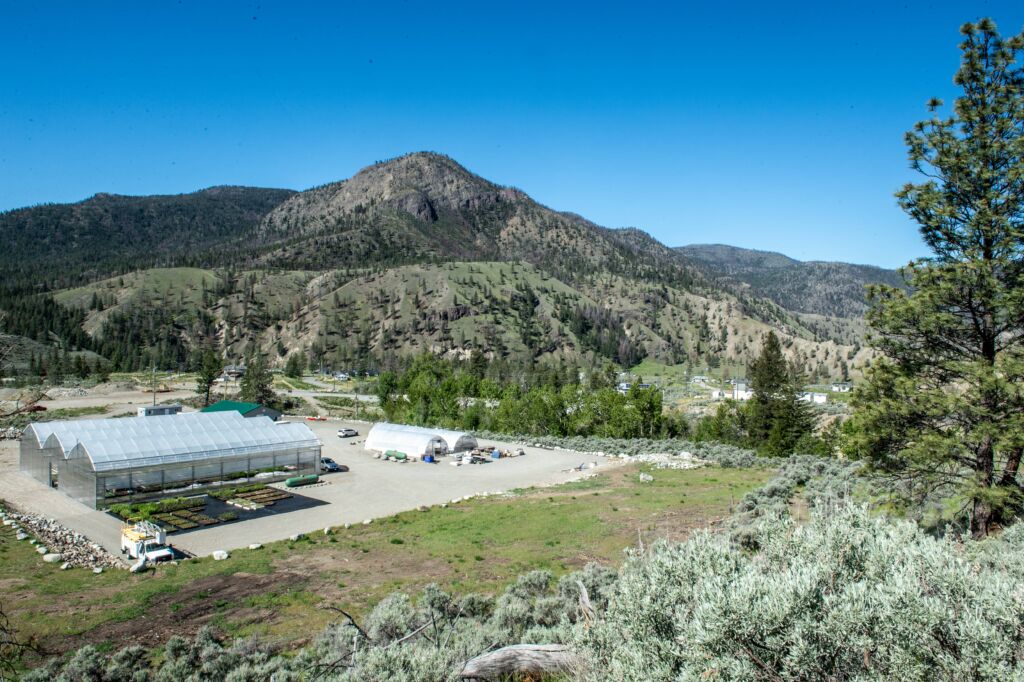
Why SCADA is Essential to Decentralized Food Production
The future of food isn’t about bigger farms—it’s about smarter, more localized farms that bring production closer to the communities they serve. Decentralized food production makes fresh, nutritious produce accessible while reducing transportation emissions and strengthening food sovereignty. But scaling this model requires precision and consistency.
Here’s where SCADA makes decentralization possible:
- Consistency Across Sites – A lettuce grown in Calgary should taste just as crisp as one grown in Vancouver. SCADA ensures that environmental conditions and growing recipes can be replicated anywhere, guaranteeing reliable quality.
- Scalability Without More Labor – Managing dozens of smaller farms could be overwhelming without automation. SCADA allows one operator to oversee multiple facilities through a centralized dashboard, reducing the need for on-site labor.
- Resilience in Disruptions – Centralized food supply chains can be disrupted by climate events, border closures, or logistics breakdowns. SCADA-enabled local farms can operate independently while still being part of a connected network.
- Sustainability at Scale – SCADA tracks resource use down to the smallest detail, making it possible to reduce water consumption, fine-tune energy use, and minimize waste—key factors in building environmentally responsible food systems.
Real-World Applications
Imagine an Indigenous community in northern Canada that wants to secure year-round access to fresh produce. Traditionally, food would need to be shipped in at high cost and low freshness. But with a SCADA-driven CEA system, that community can operate its own greenhouse or vertical farm, controlled locally but supported remotely by NuLeaf Farms’ network.
Now, multiply that by 50 communities, each producing their own food but connected through a Leaf & Root SCADA network. Best practices can be shared instantly, problems can be diagnosed remotely, and local operators can focus on growing while automation handles the complexity.
This is the power of decentralization—enabled by SCADA.

The Future: Food as a Network, Not a Supply Chain
For decades, food has been thought of as a supply chain—linear, centralized, and fragile. With SCADA in CEA, we’re shifting toward a food network—distributed, resilient, and data-driven.
NuLeaf Farms is at the forefront of this shift. Our Leaf & Root system is already being implemented by growers, developers, and communities who see food not just as a product, but as infrastructure for healthy futures.
Final Thoughts
SCADA in agriculture is more than a technology—it’s a philosophy of precision, connection, and empowerment. By pairing SCADA with CEA, we can build food systems that are local yet scalable, sustainable yet profitable, and resilient enough to meet the challenges of tomorrow.
At NuLeaf Farms, we’re proud to help growers and communities unlock the full potential of decentralized food production.
If you’re ready to explore how Leaf & Root can transform your farm, greenhouse, or community food hub, connect with us today.






